Great Design Plant: Woodland Garden Beauty Polystichum Acrostichoides
http://decor-ideas.org 12/24/2014 08:13 Decor Ideas
The woodland forest can be a study in death and decay during winter as it sleeps deeply until spring. Its floor is strewn with a tapestry of ocher and brown that creates an auditory crunch during a brisk morning walk. Every so often along the path a Christmas fern (Polystichum acrostichoides) makes an appearance, breaking through the rustling blanket, offering a respite and a glimmer of the rebirth that spring will bring. In this way Christmas fern is nature’s holiday gift to us.
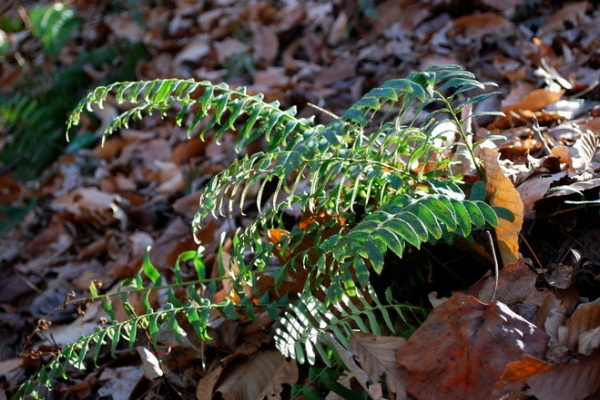
Botanical name: Polystichum acrostichoides
Common name: Christmas fern
Origin: Eastern U.S. and Canada
Where will it grow: Hardy to -40 degrees Fahrenheit (USDA zones 3 to 8; find your zone)
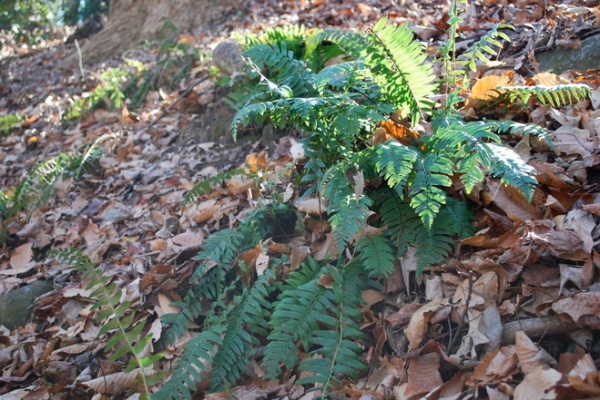
Light requirement: Partial to full shade
Water requirement: Consistently moist soil is best for optimal growth, although in nature this fern frequently grows in dry soil on hillsides.
Mature size: Up to 2 feet tall with a spread of up to 3 feet
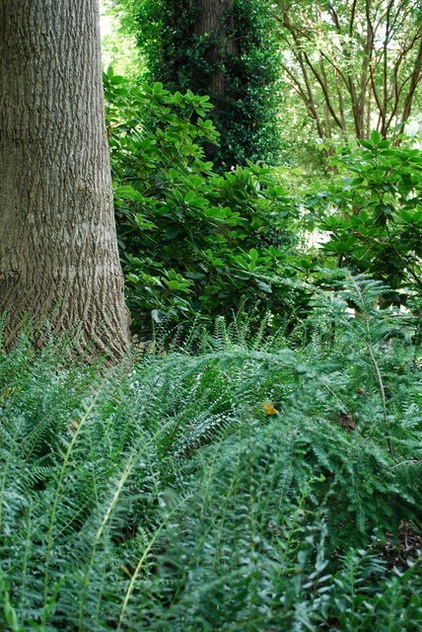
Benefits and tolerances: Resists deer, and rabbits, insects and disease; one of the more drought-resistant fern species but grows well in wet soil; a well-behaved plant
Seasonal interest: Evergreen with fronds that deepen in color as the season progresses
When to plant: Spring or fall is preferable
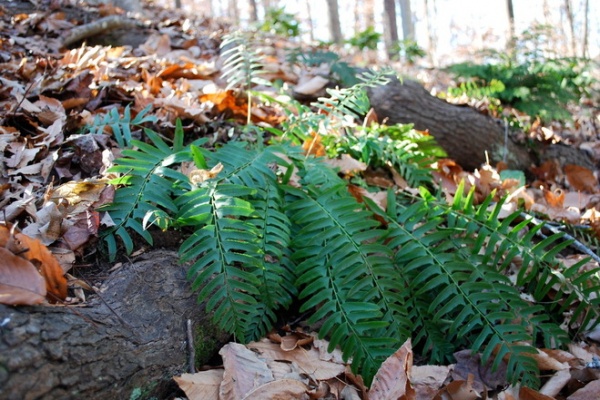
Distinguishing traits. This evergreen native begins its growing season in early to midspring by sending up fuzzy, tightly curled silver fronds that quickly unfurl to exhibit light green foliage. The coloration deepens as the season progresses, and the fronds become a very glossy dark green. Christmas fern never goes dormant, but the fronds may lie flat on the ground during cold, snowy weather. These fronds may be removed in midspring if desired, once the new upright growth matures.
Christmas fern grows in a cascading vase shape with glossy, leathery, lance-shaped fronds. It is frequently found growing on slopes near creeks.
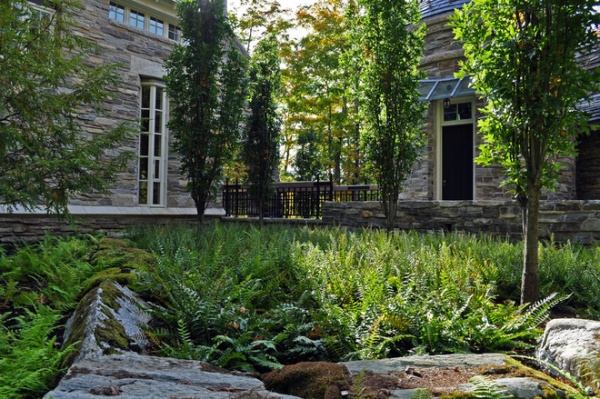
How to use it. Since Christmas fern naturally grows near rocky outcroppings on the forest floor, it is an appropriate companion for boulders in woodland or Asian-style gardens. Its upright growth habit pulls the eye upward, and it provides interesting contrast to rounded boulders and lower spreading plants.
As with many ferns, the visual impact of Christmas fern is greatly increased when it is planted en masse, as shown here. Consider planting groupings of 10 or more to make a statement in your garden.
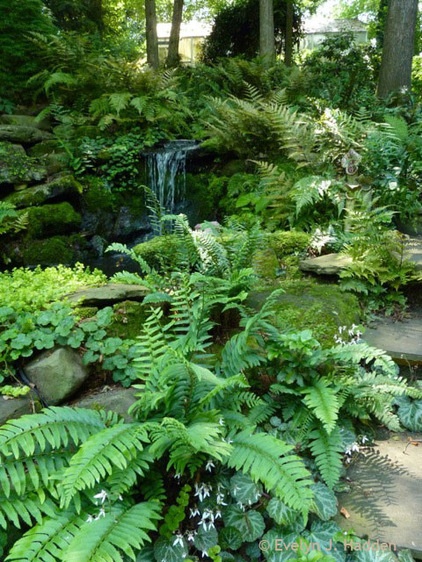
The unique textural quality of Christmas fern is also useful in creating what I refer to as a living tapestry. Weaving together similar-height plants of different shapes, textures and colors, as shown here, can add invaluable interest to the predominantly green and sometimes monotonous woodland garden floor.
Planting notes. Christmas fern is best planted in moisture-retentive soil, although established plants are somewhat drought tolerant. If you’re planting these ferns in a drier part of the garden, water them regularly several times a week until they are well established. These ferns will greatly benefit from the addition of mushroom compost or composted cow manure in the hole at the time of planting. If you are planting in consistently wet soil, consider raising the rhizome slightly above soil level and planting at an angle to reduce any chance of crown rot during winter.
It is well behaved in the garden, spreading slowly on its own, although the rhizomes can be divided in early spring if desired.
More:
Ferns: A Shade Gardener’s Best Friend
Browse more Houzz guides to gardening
Related Articles Recommended












